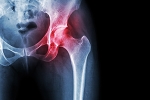Avascular Necrosis (AVN) of the hip is a serious and potentially debilitating condition that occurs when the blood supply to the femoral head is disrupted, leading to bone tissue death. Understanding this complex disorder is crucial for early detection, effective management, and preventing long-term complications.
What is Avascular Necrosis?
Avascular necrosis, also known as osteonecrosis, happens when bone tissue dies due to a lack of blood supply. In the hip, this typically affects the femoral head, causing progressive bone damage that can ultimately lead to joint collapse and severe arthritis.
Key Causes and Risk Factors
Several factors can contribute to the development of AVN:
- Steroid Use: Long-term corticosteroid medications can interfere with blood lipid metabolism and reduce blood flow to the bone.
- Excessive Alcohol Consumption: Heavy alcohol intake can cause fatty deposits to block blood vessels, reducing blood supply to the bone.
- Medical Conditions:
- Sickle cell anemia
- Lupus
- HIV/AIDS
- Diabetes
- Gaucher's disease
- Traumatic Injuries: Hip dislocations or fractures can damage blood vessels supplying the femoral head.
Stages of Avascular Necrosis
Avascular necrosis progresses through distinct stages:
- Early Stage: Minimal symptoms, often undetectable
- Developing Stage: Bone structure begins to collapse
- Advanced Stage: Significant joint damage and potential arthritis
- End-Stage: Complete joint destruction requiring total hip replacement
Symptoms to Watch For
Early recognition of AVN is critical. Common symptoms include:
- Groin or hip pain, especially during weight-bearing activities
- Limping or altered gait
- Decreased range of motion
- Pain that initially improves with rest but worsens with activity
Diagnostic Approaches
Diagnosing Avascular necrosis requires comprehensive medical evaluation:
- Detailed medical history
- Physical examination
- Imaging studies:
- X-rays
- MRI
- CT scans
- Bone scans
Potential Complications if Untreated
Neglecting AVN can lead to severe consequences, including:
- Permanent joint damage
- Chronic pain
- Significant mobility limitations
- Need for total hip replacement
- Potential disability
Treatment Options
Though treatment of avascular necrosis depends on the stage and severity, American Hip Institute takes a minimally invasive approach to treating AVN when possible.
- Early Stage:
- Medications
- Physical therapy
- Activity modifications
- Advanced Stage:
- Bone grafting
- Core decompression
- Joint preservation surgeries
- Total hip replacement
Prevention Strategies
While not all cases are preventable, risk reduction includes:
- Limiting alcohol consumption
- Managing underlying medical conditions
- Regular medical check-ups
- Avoiding prolonged steroid use when possible
American Hip Institute, Your Trusted Partner in Hip Health
Avascular necrosis of the hip is a complex condition requiring careful medical attention. At the American Hip Institute, our team of specialized orthopedic experts is dedicated to providing comprehensive diagnosis, advanced treatment options, and personalized care for patients experiencing AVN.
Early detection, comprehensive understanding, and proactive management are key to maintaining joint health and preventing long-term complications. If you're experiencing hip pain or are concerned about avascular necrosis, schedule a consultation with our experienced physicians today.

